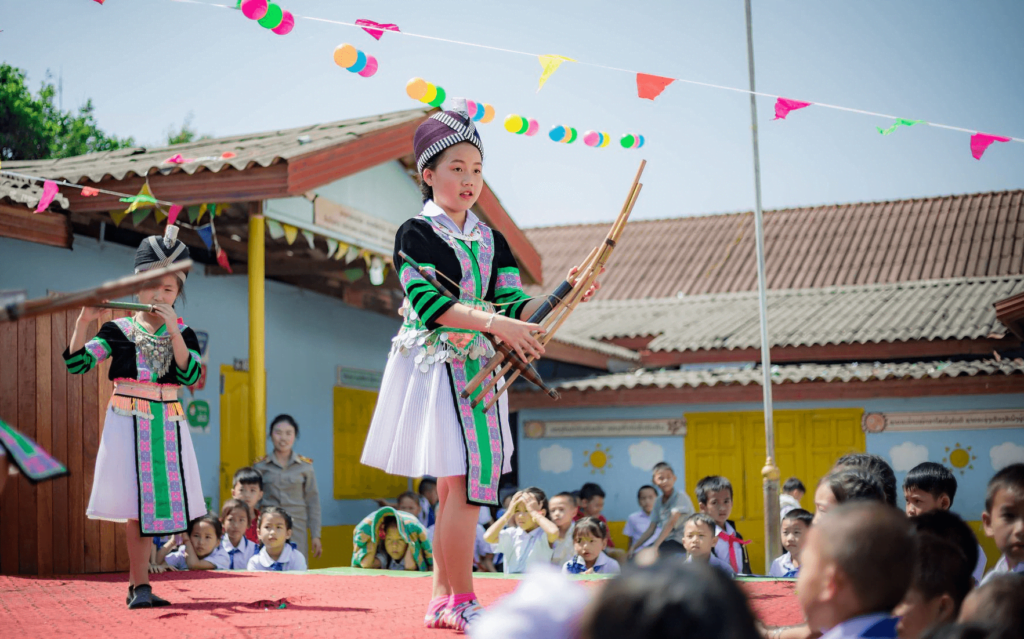
Avoiding Bad Hmong Relationship Advice
Having been out of a long-term relationship and reflecting on it, I’ve been able to get some clarity on just what about being Hmong can make a relationship unhealthy. I’ve realized that there are some serious issues regarding how the Hmong culture approaches relationships that contribute the kind of problems that create mismatches, disharmony, and miscommunication a lot of us have to deal with. From my own limited experience, I’ve been able to pinpoint some key ideas down about how Hmong culture actually hurts relationships, but first and foremost is:
1. Just because you have the best Hmong person you can find, it doesn’t mean you have the best person for you
Although this isn’t just solely a Hmong culture issue, I’ve noticed that credentials blind us in how our community chooses and picks who we date and get serious with. This issue was especially problematic in my long term relationship with my ex-girlfriend. The equation goes like this:
1. I’m a Hmong guy who graduated from a good college with a good family
2. She is a Hmong girl who graduated from a good college with a good family
3. We are attracted to each other enough to get in a relationship
…and therefore we are a match made in Hmong heaven.
Unfortunately our culture uses this logic to pair and match couples. If my parents were to choose my future wife, (and they have creepily asked me on several occasions if they could) I’m pretty sure they’re going to look at her job, her degree, and her family as the top three qualities that make her “compatible” with me. Oh and that she has to be Hmong, but you already know that.
But when my ex and I had problems we stayed together, mentally stuck on this equation. We didn’t know any other Hmong person we were attracted to who fit the bill so we didn’t notice that we had different communication styles. We didn’t pay attention to how our personalities clashed. We only knew that we were “good” for each other because we both fit the description of what who we should be dating, and I realize now I needed someone to give me good advice, except that a lot of folks gave me…
2: Generic Hmong advice is usually bad advice
In reevaluating my choices in that relationship, I’m reminded of all the terrible advice I was given over the years that didn’t help me at all. It’s the problem with our Hmong mentality that dating is just “friendship” and that all long term relationships are basically marriages. In our culture, the two most common kinds of relationship advice for long term relationships are:
1. Ib tug laib nyoo los zam (one of you has to give in or forgive)
2. Kom ib tug uv (one of you just has to put up with the other’s lifestyle and choices)
This kind of Hmong advice of putting up with or giving in blinded me when dealing with my relationship. First off, it created a situation where my ex and I thought of the relationship as a battleground of who got their way. Instead of giving us the option of talking things out, it pits us against each other and brings out the gender issue of who gives in, (which is usually women) so that we fight about gender inequality and oppression instead of the actual problem in our relationship. On top of this, the advice took away the option of breaking up, moving on, and finding someone who might make me happier. Only after finally breaking up for good, I realized I had three options the whole time in how to deal with our problems:
1. If the problem is simple enough to forgive and let go of, I should do that and stay together
2. If it’s a severe problem, we need to have a conversation about how to resolve that problem and come up with some steps to do so, like professional counseling or better communication styles
3. If it’s a chronic issue that cannot be resolved, I have every right to leave
That last choice didn’t seem like an option for the longest time. We were lucky enough to not have children or be married, but looking back, I realized the feeling that I couldn’t leave the relationship was causing even more problems. I took her for granted, neglected her, and issues of cheating and suicide resulted from feeling stuck in something that I didn’t want to be in anymore. It became mentally and emotionally unhealthy for us to stay together, and that wasn’t just affecting me and her, it affected everyone close to us. But even then, everyone was still telling us to stay together and work things out, which brings me to my last point:
3. Don’t stay in a relationship for other people
In the Hmong community, everyone knows everyone and in time becomes emotionally invested in each other’s significant other. In retrospect, there were a lot of other people’s feelings I was considering or putting ahead of my own before breaking up with my ex. To end the relationship with my ex, I had to not just break my heart and my ex’s heart, I had to break my family members’ hearts, her family member’s hearts, and our mutual friends’ hearts as well. It was hard to take that kind of responsibility. But nothing is worse than to be stuck in a relationship where we couldn’t grow or be happy for the sake of everyone’s feelings and expectations. I guess that might mean that I’m being selfish, but I have learned from taking that stand:
1. Someone who is compatible with you is able to be honest with you and is able to resolve problems with you; someone who you can share experiences and responsibilities with
2. No amount of credentials or family support can make up for the fights, miscommunication, distance, and loneliness experienced by staying with someone who simply isn’t compatible or willing to work with you
3. It becomes your responsibility to make decisions for your own wellbeing after a certain point, even if it temporarily hurts or disappoints others
It is a great thing to love another person, but we all need to remember that we should love and put ourselves at least on equal footing with the people in our lives. Love and relationships shouldn’t feel like prisons or battlefields, they should be a place where we can feel accepted, appreciated, and understood. Unfortunately, Hmong relationship advice is generally ineffective at helping us in figuring out how to make meaningful strides in building healthy relationships. It’s important to trust our own emotions and feelings as well as take responsibility for the personal decisions we have to make for our own emotional and mental health.









Responses